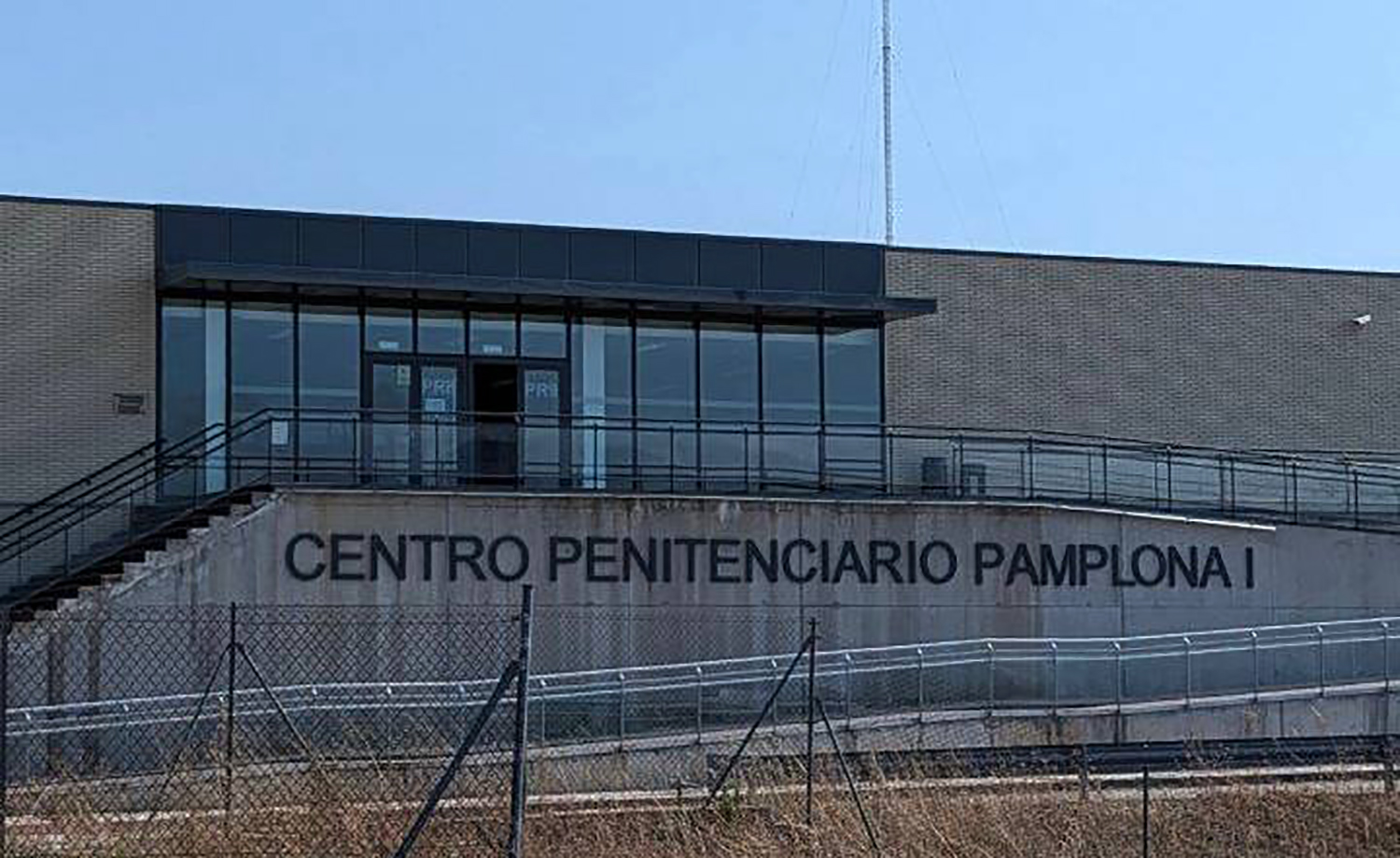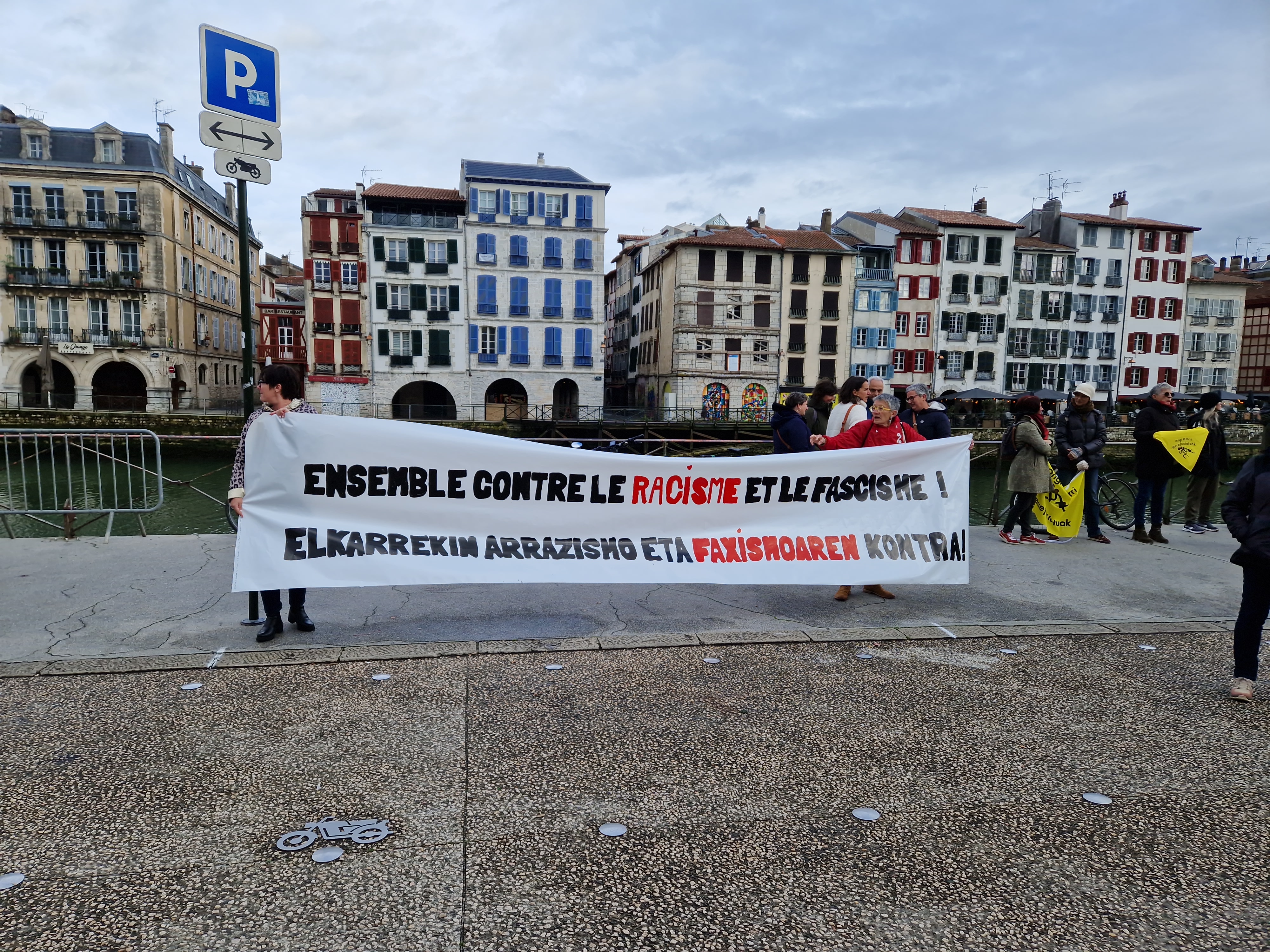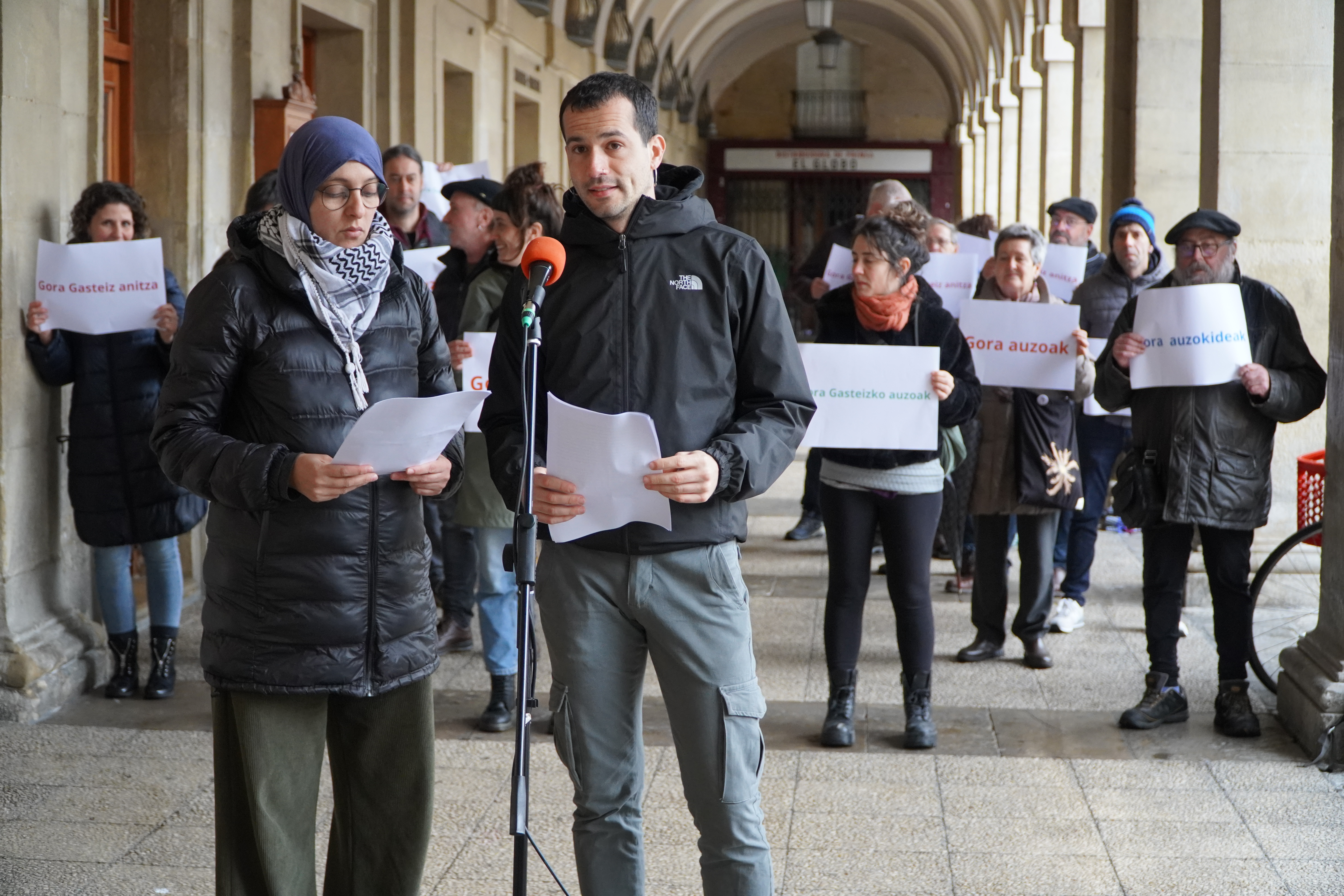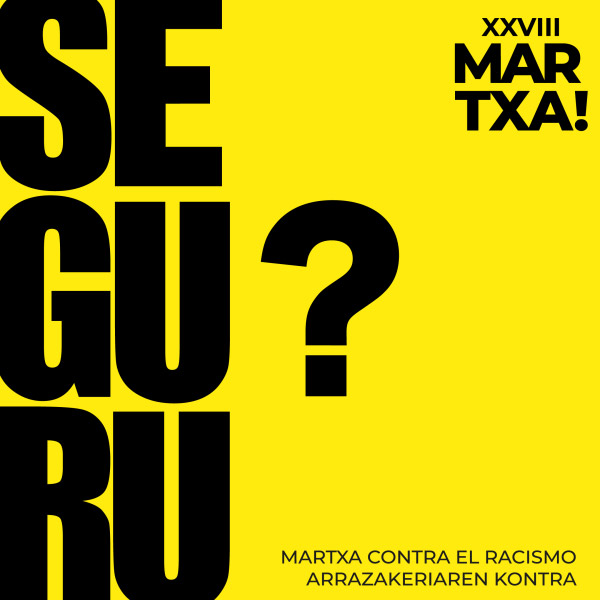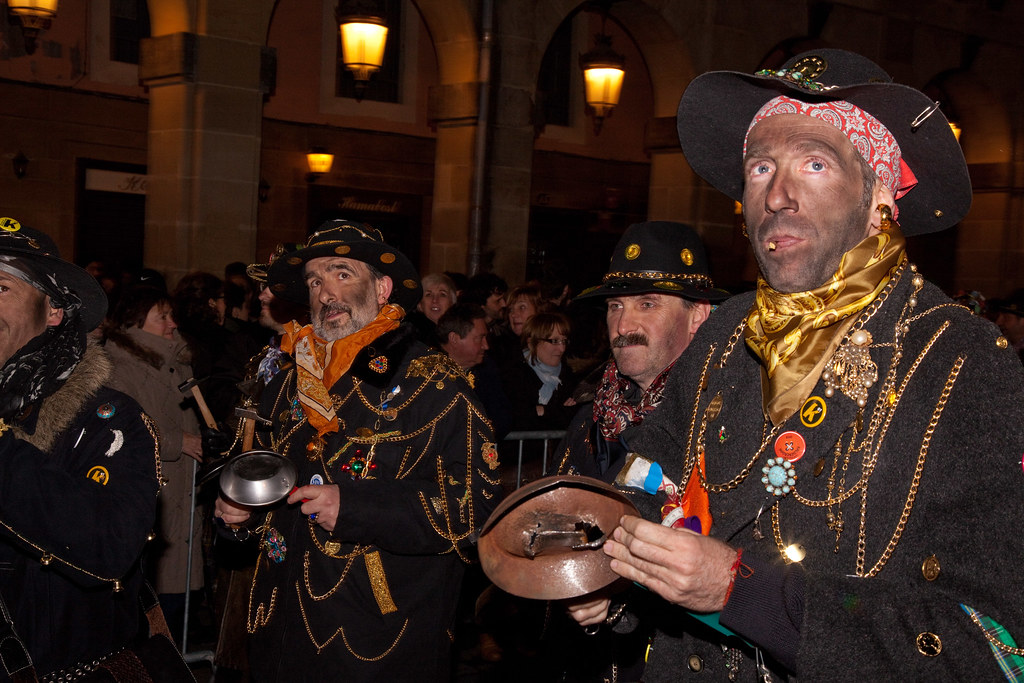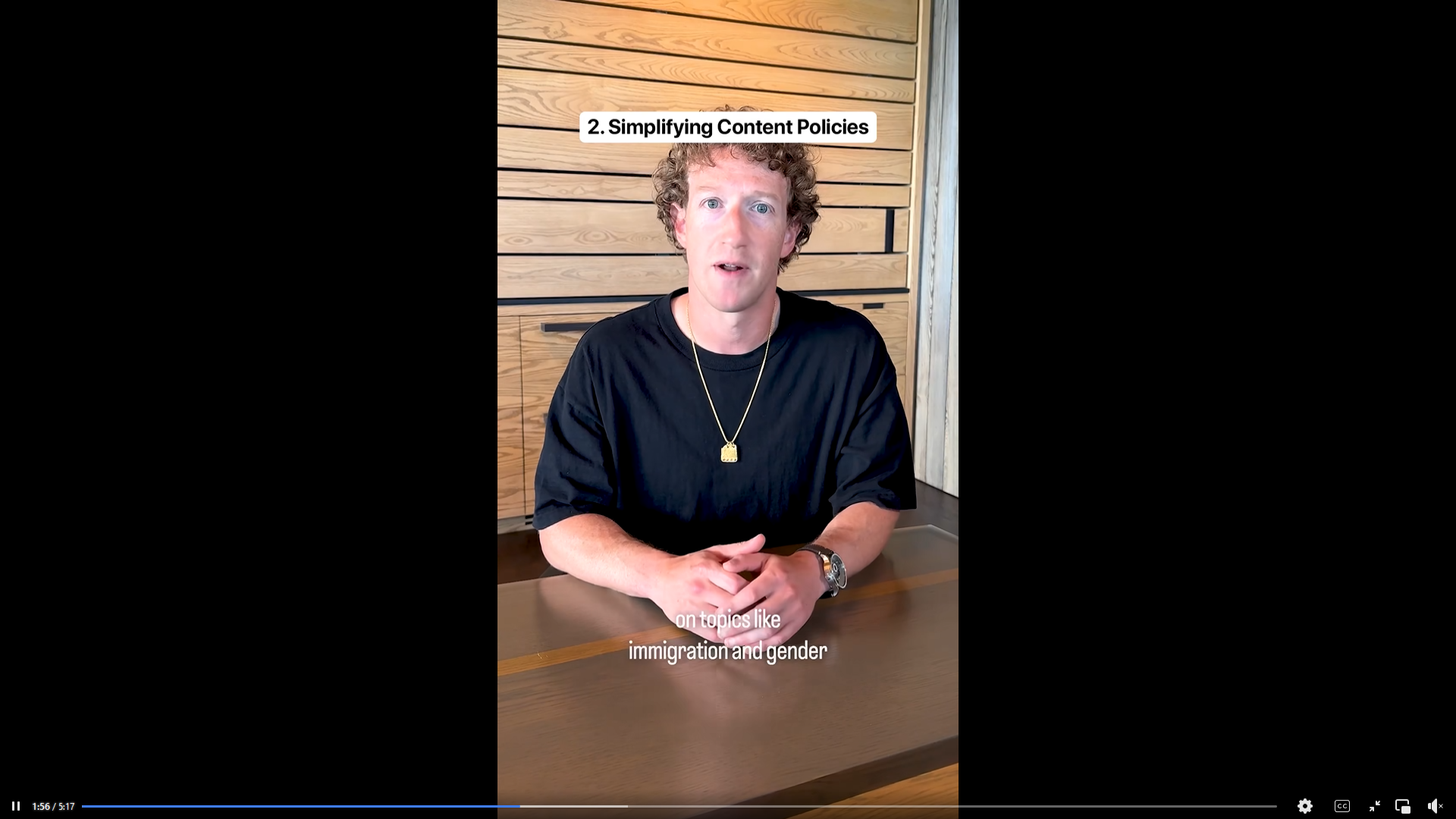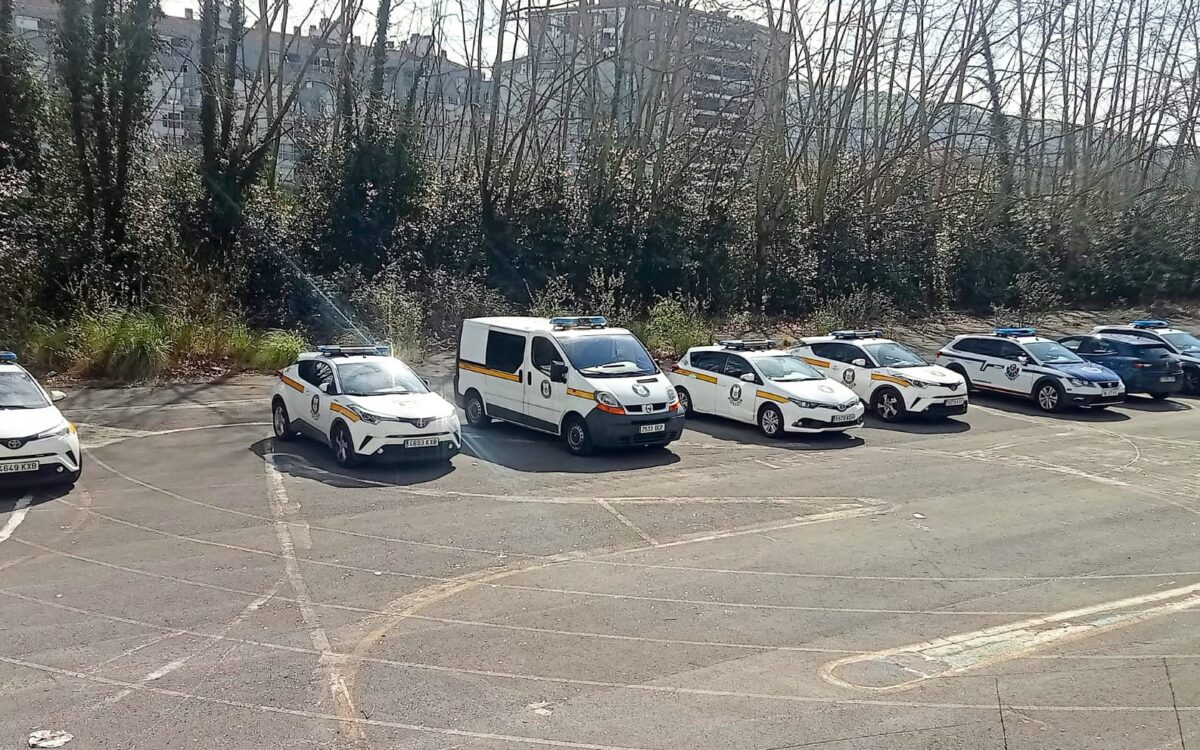"We need accomplishments in the fight against reason, otherwise there will be great frustration"
- Moha Gerehou has been fighting racism for years and overcoming the hatred and shame he felt for himself. We have referred to the difficulties and challenges of activism, academicism without action, tiredness, paternalism, the Mr. Wonderful with messages and empathy. Recently published the book What makes a black like you on a site like this, which sews her experiences and her anti-razist discourse, the journalist of Huesca (Aragon) has spoken to us clearly: “This pedagogical work is not free: we do pedagogy for people to take action.”

For years you hated yourself for being black, Muslim and of Gambian origin. You've gone from Autolotsa to reclaim your identity. What is the process like?
I realized that all that self-government that I lived is absolutely imposed: structural racism and that imbalance of power makes those identities (being black, Muslim…) exclusive, that if you live here you can't be black and Muslim. And in the process of turning that around, I've had a number of assiduous experiences: on the one hand, the knowledge and the know-how that I've been acquiring for years; on the other hand, understanding that all this is something imposed and not natural; and on the other hand, sharing experiences with people who have had a similar story to better internalize what it means to be black in this society. All of this has taken me to this point, and it is essential to start this process as soon as possible, from childhood, developing identity and creating all of these conflicts to find answers and heal wounds much earlier. I've also written this book for that. I myself would appreciate it if when I was young I had a book or a shared colloquium, rather than starting to think about these things at the age of twenty-five.
Moreover, not everyone will do this process, they will stay in self-government, in self-consumption...
And that's why it's important that anti-razor knowledge reaches more people and much earlier; that's the collective effort we have to make. I am in favour of using all the means available for this, from academia to the Tic Tok platform. Everyone will see how and by what way the process is made, but they will not go ahead because they have not had access to that knowledge, and I believe that today there is such a problem.
"Solidarity is not the problem, the problem is what it transmits: it seems that the hug that gives you a blank is the solution, and that limits our gaze, because the problem is much more complex"
Being black, they often deduct that you're a migrant, but you say you've been born in the Spanish state. However, you also speak in the book of the backpack inherited from your African parents. When does one stop being a migrant, how do you experience that dichotomy?
In the eyes of this society, everything that is not white is foreign, so we are continually claiming our Spanish. It is not because I want to claim to be a Spanish, but because I am obliged to demand it from the situation of exclusion. But as you say, there's also the identity inherited from your parents, the identity of customs, culture and religion, and you have to fight with that backpack, because you feel that those identities don't correspond to the society in which you live, that if you want to integrate into it you have to leave those others behind until you realize that you don't. However, the backpack is heavy, because also from the migratory side there are expectations, how you have to be, but I have made my way. When it comes to building identity, you have to break conflicting paths and make decisions, leave some things behind and go ahead.
From a migratory point of view, you are a secondary generation and talk about an inherited backpack. Do you think that the third, the fourth -- the generations, by the color of their skin, will still have that backpack?
In the same French State there are the fifth and sixth generations, who are not considered as French, and who are still foreign because of their race. Until recently, when we had talked about racism from antirazism, we were talking about migration, but no longer, about race, because no matter whether your parents are migrants or not, race determines to what extent structural racism affects you. Until we manage to eliminate the concept of non-white = deeply rooted migrant, my grandchildren and great-grandchildren will continue with this backpack on their backs.
The image we have of Africans is that they are poor, without culture, savages... What surprised me is that you, at 9, had that picture of Africa, because your parents are from the Gambia.
Because from this racist knowledge that we receive from a young age, we are not safe, as I have learned racist language and as a child I have internalized the racist view. Through films, documentaries, etc., the image I had of Africa collided with what my parents were telling me at home, yes, but everything else is so strong, so rooted in all fields, my parents' word is lost. I believed in the other until I arrived in Africa and began to accommodate anti-razor knowledge. The problem is that we started too late to internalize anti-razor knowledge and that the opposite messages received for years have their roots consolidated in our environment.
"Those who have to feel challenged are not the ones who have suffered a racist comment, but the rest of those who are with us. Responsibility must be shared"
Precisely, school is an important space for dealing with these messages. What are the keys to working on diversity in school?
The education system says that there can be no racism, but if measures are not taken to do so, it is merely an expression. I think there are many keys: to think that being a plural group in itself is a guarantee to combat racism; for example, it is not fair; students do not receive anti-reason knowledge in school (for example, through the curriculum); many teachers do not know how to deal with racial conflicts (if one student has called another “disgusting black”, the solution cannot be to ask for forgiveness and suffice); we do not follow the problem in a way.
Many teachers think that talking about racism and the conflicts it creates is a problem, but talking about all that is precisely the starting point for the solution.
As an activist, you're used to coping with racist assaults. In the book, you realize that it's harder to report when people close to you, consciously or unconsciously, are racist.
When such a situation occurs, I believe that those who have to feel challenged are not the ones who have suffered the racist comment, but the rest of those who are with us, those who have been able to identify the racist situation, but who have been silent, because that attitude reinforces what the comment has made. Responsibility must be shared. That racist situations make us all uncomfortable (and not only when there is someone who is not white in front of us) and that we bring that discomfort to words, that is the goal, because it often seems that what makes us uncomfortable is to point out the racist situation and somehow spoil the environment.
Your book has been well received, but it is significant: a book on anti-razism has been racially welcomed by some.
This shows how necessary it is to put anti-racist discourses on the table, but at the same time, we have to be prepared, because as the anti-racist discourse becomes stronger in society, it will produce a contrary reaction, it happens the same with all social movements, feminism witnesses it. We need to set up support networks to respond collectively to racist assaults and not stay alone. I understand that it's part of the process.
"Academic activism benefits people who are not in a hurry, who can take it calmly, and the fact that it becomes popular makes there more pressure and urgency."
Okay, but for those on the front lines of activism, it won't be easy for them to receive this kind of personal attack on a continuous basis. In the book you have reported that activism at one point devoured your life, that taking care of oneself is also important.
I put aside my hobbies, my health -- in favor of activism. I have learned to balance it and to support myself with the help of the people. How important it is, for example, to receive a racist attack on social media and to have people write messages of support for you! In short, although these are personal attacks on those we face, we must understand that the attack on an anti-razor activist is an attack on the whole of society, it is an attack by questioning our unfair system and, therefore, we must all unite.
In the fight against racism, how much do their actions have of paternalism?
A very clear example of what happened recently: In Ceuta, a Red Cross worker has hugged a migrant and the image has become a viral image. We know that the worker is called the moon, but we don't know anything about the man who embraces. Solidarity is not a problem, the problem is what it transmits: it seems that before those militarized and murderous borders the solution is the hug that gives you a target, that the solution is more people like Luna, and that limits our gaze, because the problem is much more complex. I am, of course, in favour of the humanization of all this violence, but the only message that stands out is that, rather than talking about what is happening in Africa, migration policy and deep roots.
In the talk we held in 2017 for ARGIA, the headline was: “Those of us who have suffered racism have to lead this struggle, not the leftist whites.” Have we reached the other end? Are the struggles so individualistic, that if it doesn't affect me directly, I don't feel challenged?
What's happened to a lot of white people is that when he's been taken away from the leadership position in the fight against reason, he's decided not to do anything in that fight, and that doesn't say anything good about those people. In these years things have changed, we no longer see round tables full of white experts talking about racism, but of course white people have room in the anti-razist movement: anti-razism is not just taking the microphone and going to demonstrations, but anti-razism is influencing everyday life from a young age. And I believe that those who think “this struggle is not my thing” can see that it is also their struggle, emphasizing what is happening around them.
Do you see many reflections and few actions in activism?
That's one of the big risks we have. We are taking great steps in anti-razor knowledge, but together with them we need progress in the conditions of migrants and racialized people. That's the ultimate goal, that our lives will improve. Knowledge must become action, things must be done and we need achievements, otherwise there will be great frustration: society will increasingly identify racism, but it will also be easier to see that no real progress has been made.
"What's happened to a lot of white people is that when he's been taken from the leadership position in the fight against reason, he has decided that he has nothing to do in that fight, and that doesn't say anything good about those people."
Too academic activism is the subject of Lucia Mbomío in the introduction of his book.
One of my objectives is that anti-razism should be popular, that it should be mainstream and that it should be part of the usual colloquia, that it should not be just the issue of marginals and activists. In addition, academic language benefits people who are not in a hurry, who can take it calmly, because the rhythm of academia is slow, and the fact that it becomes popular makes pressure and urgency greater. The constant pressure on the street population is more effective than a three-year report on the poor state of the Migrant Detection Centres, demanding its closure once and for all.
In this struggle, empathy can be a powerful tool. With the book you wanted people to be able to put yourself in your place.
In my opinion, empathy depends in part on all the people who are betting on social justice, because although it does not directly affect it, it is able to fight for those who are suffering to do so. It is important to understand all this collectively, and for this it is important that we talk to each other, that we share experiences, that we tell each other… In the book I tell my story, a story that is not glamorous, but that is why it can be a mirror and a meeting point for many people.
Another of the strong tools is pedagogy... but what tiredness it can get to do pedagogy constantly, to whom it has an attitude “let’s go, convince”.
Indeed, we cannot answer all the questions of the people, because we are already spreading our anti-razist knowledge so that whoever wants to get it (in my case, this book, social networks, Youtube videos…). This pedagogical work is not free: we do pedagogy to turn it into an anti-razist action. I mean, I've written a book because I want the reader to wake up, for this racist system to make him feel uncomfortable and for him to take action. More than raising awareness, I'm looking to activate people.
But pedagogy isn’t worth much with people like the extreme right…
The desire to convince these people is of no use, the only thing that is worth is to push forward the anti-racist measures: rights for all and to protect lives. Responding to the extreme right and dismantling lies is of no use, because lies disassembled over and over again are maintained over the years, and that's what the left has to understand. Racism is indifferent to truth, to data and to zienphytic evidence, racism needs no more than racism to keep growing. The end of racism is therefore the only way to deal with racist discourse: to take life-changing measures for people condemned to exclusion.
They are not as dangerous as those on the far right, but Mr. The Wonderful do not favour the struggle.
No, because they make nice speeches that look good, but they don't provide anything. It's very nice to say you don't see color between people, but the problem is not seeing the colors, but why we play differently against one or the other skin color. Another topic is that racism heals itself by traveling. Oxala! We would send far-right people on airplanes to spend ten days somewhere else. Reality is different, and it's based on knowledge and power.
Read the interview in PDF format.
.jpg)
Segurtasun falta dagoen irudipena handitu dela azaldu du Eustaten azken txostenak. Gurean, Trapagaranen, Segurtasuna orain, delinkuenteen aurka manifestaziora deitu dute herritar batzuek.
Bi izan dira sentsazio hori zabaltzeko arrazoiak. Batetik, udalak Udaltzaingoaren... [+]
Hirurehun bat pertsona hurbildu ziren jende katea osatzeko Marengo eta Pannecau zubien artean.
Hainbat kolektibo daude Gasteiz Anitzaren atzean. Egoera larrien aurrean "soilik poliziaren esku hartze gehiago" eskatzen duen eta "eskubideen urraketei entzungor" egiten dion ereduaren aurrean, beste praktika eredu bat egiteko saiakera dela adierazi dute... [+]
Trintxerpen hasi eta Donostian bukatu da hainbat kolektibok deitutako XXVIII. Arrazakeriaren Kontrako Martxa.
Hurrengo ariketa egin ezazu zure lantokian, euskaltegian edo gimnasioan:
Altxa eskua Minneapoliseko George Floyd nor den dakizuenok.
Altxa eskua Madrilgo Mame Mbaye nor den dakizuenok.
Altxa eskua Barakaldoko X nor den dakizuenok.
Mame Mbaye manteroa duela zazpi urte... [+]
1960ko martxoaren 21ean, Hegoafrikako Poliziak 69 lagun hil zituen apartheidaren kontrako manifestazio baketsu batean. Ordutik, egun hori Arrazakeriaren eta Xenofobiaren Nazioarteko eguna ospatzen da, aldarrikapenez beteta. SOS Arrazakeriak urtero gai ezberdin bat lantzeko... [+]
Lau turistak eraso zieten jatorri pakistandarreko hainbat langileri, Lekeitioko Gazte Asanbladak salatu duenez.
Hamasei migrante atxilotu zituzten otsailaren 6an Baionan, etorkinen eskubideen aldeko elkarteek salatu dutenez. Dirudienez, Baionako prokuradoreak eman zuen agindua. Operazioa autobus geltokiaren eta Pausa harrera zentroaren artean gauzatu zuen poliziak, tartean, adingabekoak... [+]
I don't want my daughter disguising herself as a Gypsy in the caldereros. I don’t want Gypsy children at my daughter’s school to dress up as Gypsies in caldereros. Because being a gypsy is not a disguise. Because being a gypsy is not a party that takes place once a year, with... [+]








